The world of surfing extends far beyond the idyllic sun-kissed beaches of tropical paradises.
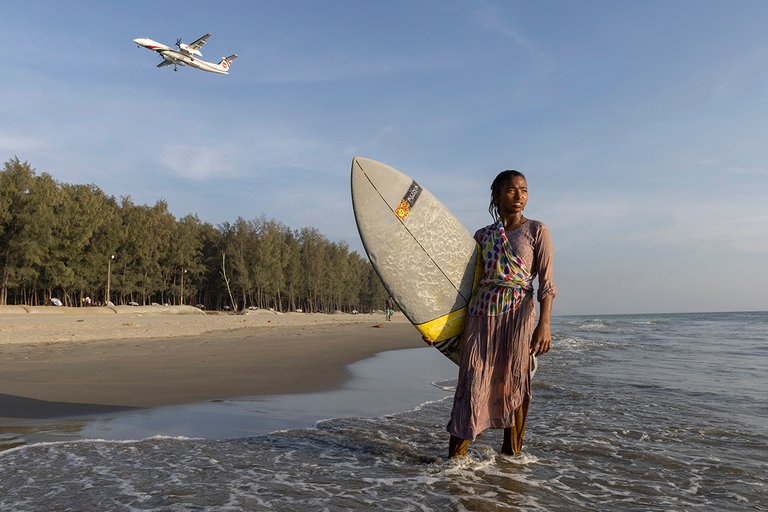
In recent years, Bangladesh has emerged as an unlikely but inspiring destination for surfers, including a growing local community of surfer girls who are not only challenging gender stereotypes but also making waves of empowerment in their coastal communities.

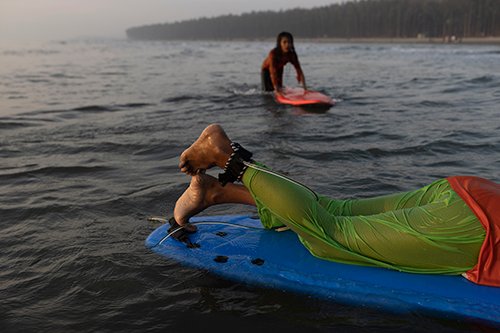
The waves of the Bay of Bengal crash against the shores of Cox's Bazar, located in the southern part of the country, creating a unique haven for surfers. Surfing here is still in its early stages but has rapidly gained popularity among the locals, including young girls who have embraced this sport with enthusiasm.

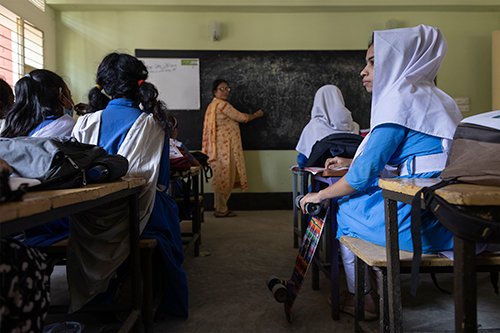
The journey of a surfer girl in Bangladesh is a story of courage and resilience. In a conservative society where gender roles are deeply ingrained, these girls challenge traditional expectations by embracing a sport in a country not traditionally associated with it, often seen as the domain of men.
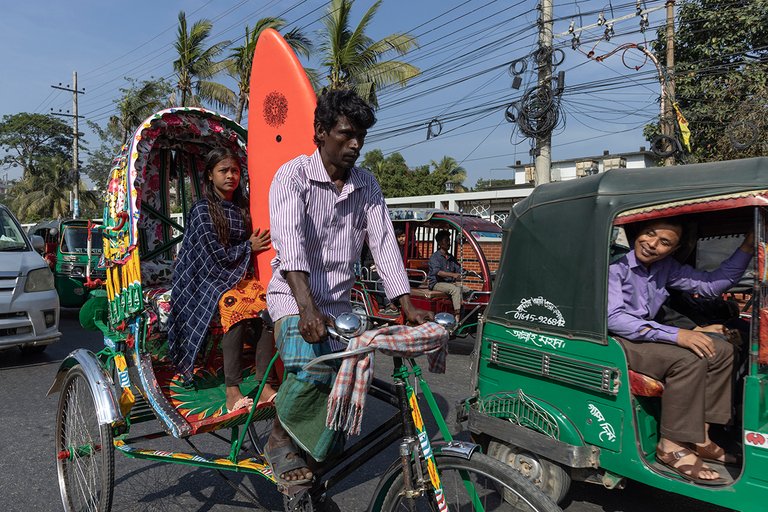
They break free from traditional roles to chase the thrill of the waves, standing tall on their surfboards.
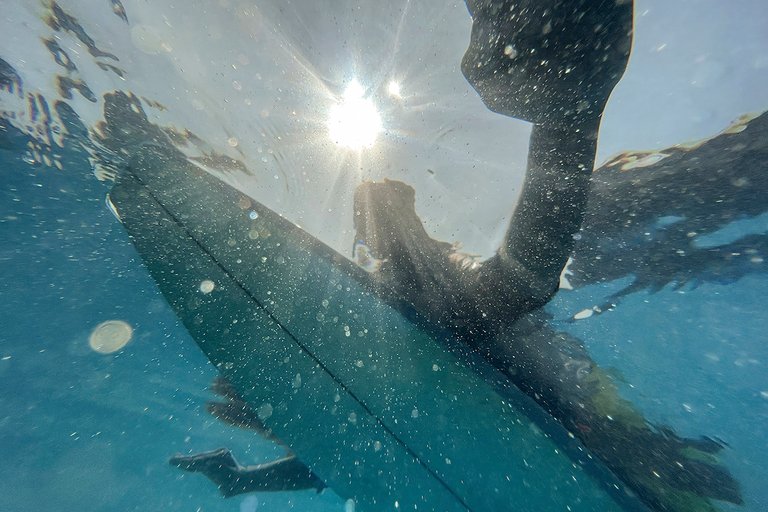
Surfing not only provides these girls with a unique sense of freedom and exhilaration but also empowers them in numerous ways. It instills confidence, strength, and a sense of community among them. They come together, supporting one another as they share their passion for riding the waves. Their passion for surfing transcends the confines of tradition, enabling them to conquer both the sea and societal expectations.

In this process, they have emerged as symbols of resilience and determination, serving as a powerful reminder that empowerment knows no boundaries and that waves of change can originate from the most unexpected places.
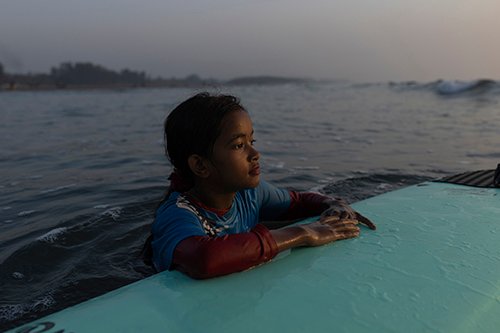
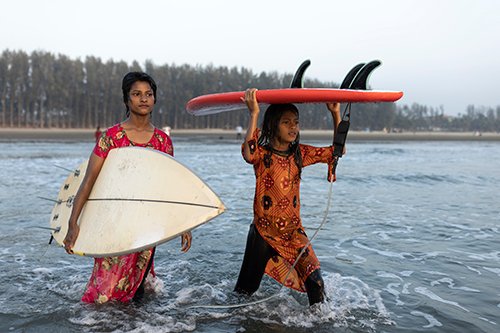
For most of these girls it was a daunting task due to social and family expectations. They fear being labeled “impure” or “rebellious,” which prevents many from pursuing their dreams and aspirations.
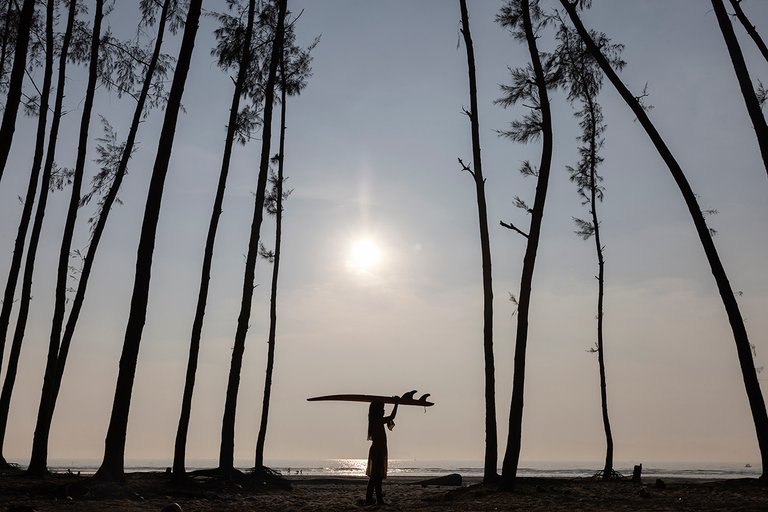
Some secretly ventured to the sea in the morning, before school, and in the evening, before selling jewels on the beach, a common activity among young people to support the family. Some parents, however, embrace their daughters' aspirations, hoping that surfing can bring about something positive.
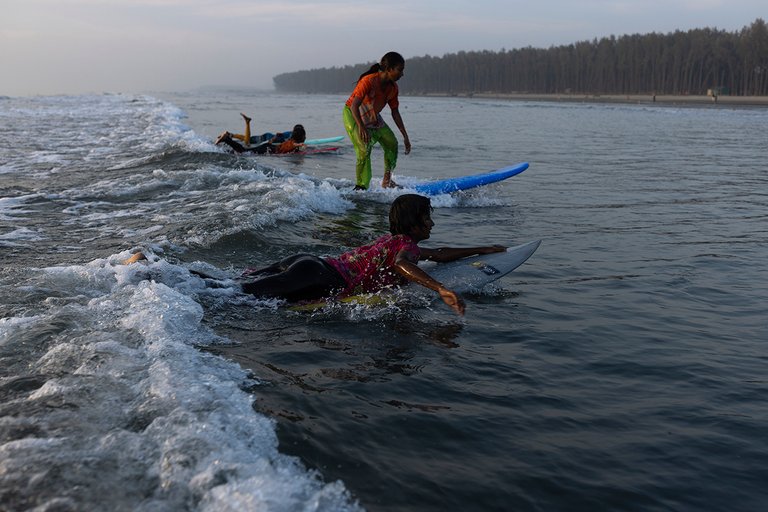
For a period, various humanitarian organizations stepped in to support and nurture the burgeoning surfing community in Bangladesh. They provided valuable assistance, including training, equipment, event organization, competitions, and, perhaps most crucially, education and monthly provisions of food.

The surf girls had big dreams, ranging from envisioning themselves competing on the global stage in surfing championships to aspiring to establish their very own surfing clubs.
Since the termination of those programs, it has been nearly a year, and these young girls have not only been deprived of their access to education and essential food supplies. They have also been banned by the government from working on the beach, which was in fact the primary source of income for the majority of these girls' families.
What has also become a major issue for these girls is that most of their parents don’t have any National Identification (NID) cards. Consequently, these children may face barriers to accessing education and government schools due to their insufficient documentation.
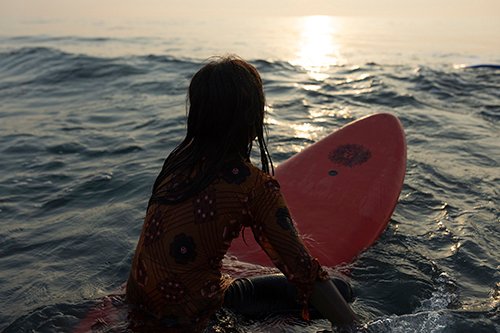
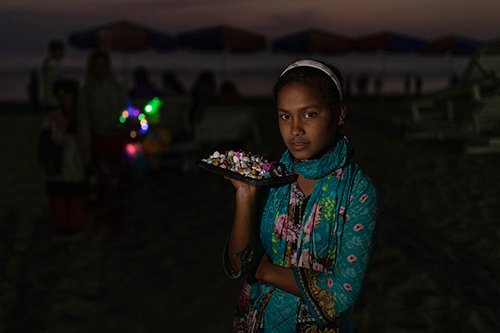
Parents who once considered their adolescent daughters to be a support for the family, are now considered them a burden for the house. Even the parents who once encouraged their daughters to surf in the hopes of them finding a promising future and establishing their own identity through the sport are now rekindling their optimism.
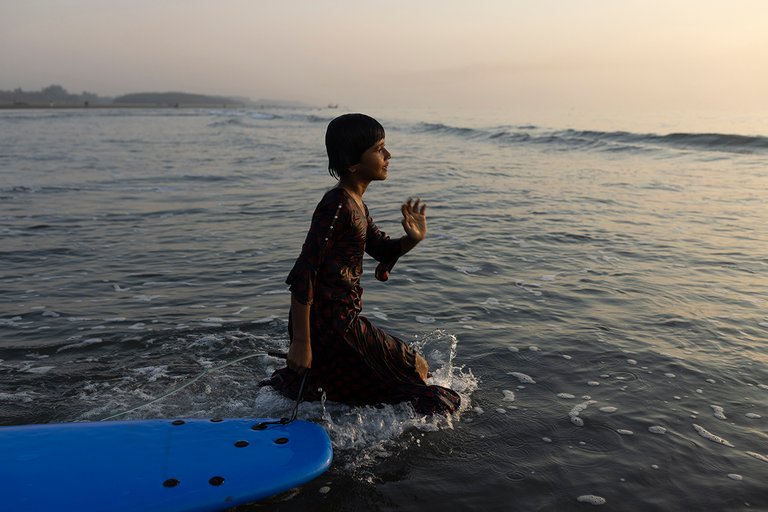
It has come to light that a few thirteen and fourteen-year-old girls found themselves in situations where their parents felt compelled to arrange marriages with significantly older men. This heart-wrenching scenario seems to rob these young girls of their hopes and dreams with each passing day.
